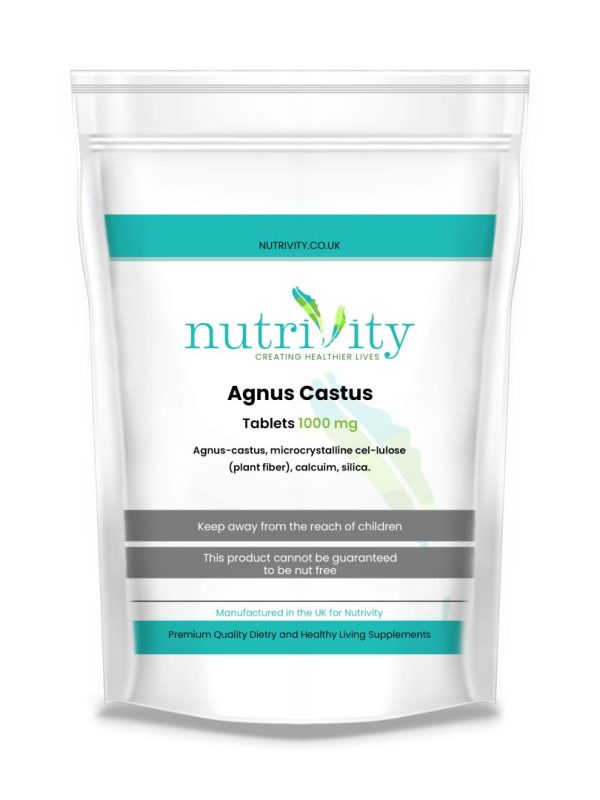Is agnus-castus good for depression?
Agnus-Castus for Depression: An Effective Natural Remedy?
Introduction
Depression is a prevalent mental health condition that affects millions of people worldwide. While conventional treatments like therapy and medication are widely used, there is growing interest in exploring natural alternatives. Agnus-castus, also known as Vitex agnus-castus or chasteberry, is an herb with a long history of use in traditional medicine. In recent years, it has gained attention as a potential natural remedy for depression. In this article, we delve into the scientific evidence surrounding the effectiveness of agnus-castus for depression.
Understanding Depression
Depression is a complex condition that involves a range of symptoms, including persistent sadness, loss of interest, fatigue, changes in appetite, and sleep disturbances. It can significantly impact an individual’s quality of life. While the exact causes of depression are not fully understood, researchers believe that imbalances in neurotransmitters like serotonin and dopamine play a crucial role. Traditional antidepressant medications aim to rebalance these neurotransmitters, and this is where agnus-castus comes into the picture.
Agnus Castus
The Potential Benefits of Agnus-Castus
Agnus-castus has been traditionally used to alleviate various women’s health issues, such as premenstrual syndrome (PMS) and menopause symptoms. Its therapeutic effects are attributed to its ability to influence hormone levels in the body. Research suggests that agnus-castus may also affect neurotransmitter activity, making it a potential candidate for treating depression. Preliminary studies have shown promising results, indicating that the herb may increase serotonin levels, enhance mood, and alleviate depressive symptoms. However, more extensive research is needed to establish its efficacy and safety.
Scientific Evidence and Studies
Several studies have investigated the effects of agnus-castus on depression. A randomized, double-blind, placebo-controlled trial published in the Journal of Complementary and Integrative Medicine found that women with depression experienced significant improvements in depressive symptoms after taking agnus-castus extract for three months. Another study, published in the Journal of Alternative and Complementary Medicine, reported similar results, with participants showing reduced depression scores compared to the placebo group. However, it is worth noting that most of the existing research has focused on specific populations, such as women experiencing hormonal imbalances. Further studies involving diverse populations are necessary to validate these findings.
Safe Usage and Potential Side Effects
Agnus-castus is generally considered safe when used as directed. However, like any other herbal supplement, it may have potential side effects. Commonly reported side effects include gastrointestinal discomfort, skin reactions, and hormonal changes. It is essential to consult with a healthcare professional before incorporating agnus-castus into your depression treatment regimen, especially if you have underlying medical conditions or are taking other medications. They can provide personalized advice and monitor your progress while considering potential interactions.
Unlocking the Potential of Agnus-Castus: A Natural Remedy for Depression
Depression, a prevalent mental health condition, affects millions worldwide. While traditional treatments like therapy and medication are essential, exploring natural remedies can complement conventional approaches. Agnus-Castus, also known as Vitex or Chaste Tree Berry, has garnered attention for its potential to alleviate depressive symptoms.
Understanding Agnus-Castus:
Agnus-Castus is a herb native to the Mediterranean region, prized for its medicinal properties for centuries. It contains active compounds that influence hormone levels and neurotransmitter activity, potentially impacting mood regulation.
The Link Between Agnus-Castus and Depression:
Research suggests that Agnus-Castus may exert antidepressant effects by modulating serotonin and dopamine levels, neurotransmitters crucial for mood stability. Additionally, its hormone-balancing properties may benefit individuals experiencing depression related to hormonal imbalances, such as premenstrual dysphoric disorder (PMDD).
Exploring the Evidence:
While further studies are warranted, preliminary research indicates promising results. A systematic review found evidence supporting Agnus-Castus’ efficacy in reducing depressive symptoms, highlighting its potential as an adjunctive therapy for depression management.
Incorporating Agnus-Castus into Depression Treatment:
Consulting with a healthcare professional is paramount before integrating Agnus-Castus into a depression treatment regimen. They can provide personalized guidance, considering factors like medical history and existing treatments, to ensure safe and effective use.
Agnus-Castus represents a natural approach to managing depression, offering potential benefits for those seeking alternative or complementary treatments. While more research is needed, its historical use and preliminary evidence warrant consideration in depression management strategies.
-
Product on sale
 Agnus Castus 1000mg Vegan TabletsOriginal price was: £28.99.£24.99Current price is: £24.99.
Agnus Castus 1000mg Vegan TabletsOriginal price was: £28.99.£24.99Current price is: £24.99.
Conclusion
While agnus-castus shows promise as a natural remedy for depression, more robust research is needed to establish its efficacy and safety conclusively. As with any alternative treatment, it is important to approach it with caution and consult a healthcare professional for guidance.
- Agnus-castus for depression
- Vitex agnus-castus and depression
- Can agnus-castus alleviate depressive symptoms?
- The efficacy of agnus-castus in treating depression
- Natural remedies for depression
- Vitex for mood disorders
- Herbal supplements for depressive symptoms
- Agnus-Castus and serotonin levels
- Hormonal imbalance and depression relief
- Is agnus-castus a natural remedy for depression?
[Sassy_Social_Share]





